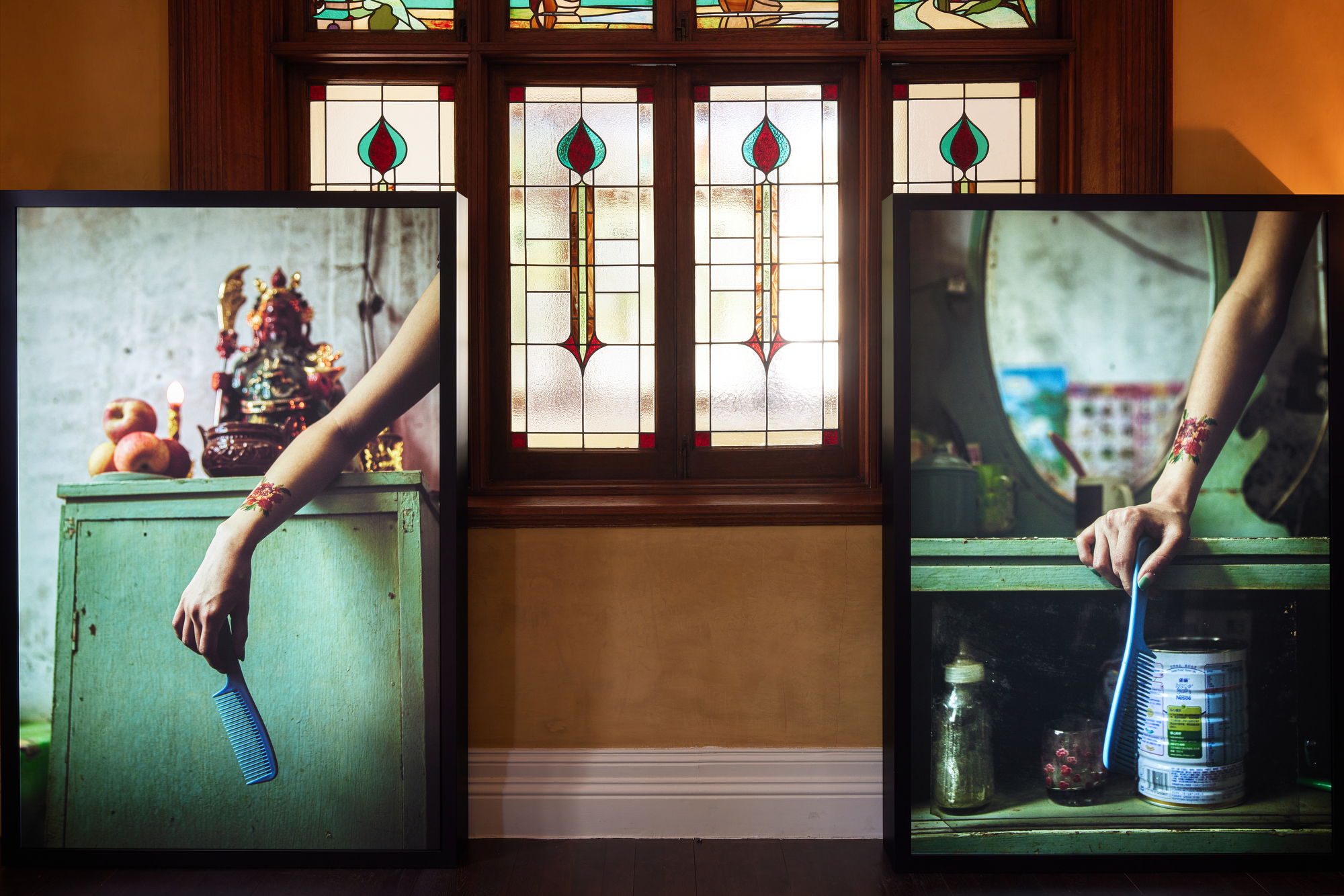As Shanghai tiptoes towards post-pandemic normalcy, comfort food and reunion hold an ever-prominent role in the minds of city residents.
Fitting then, that noodles and social gathering were concepts filmmaker Jia Zhangke chose to weave together for Mian, a site-specific installation at Prada Rong Zhai, a century-old mansion the Italian fashion house laboriously renovated in 2017 and has since transformed into a dynamic cultural center.
The two-day exhibition was the latest pop-up for Prada Mode, the luxury brand’s peripatetic private members club first introduced in 2018 — previous iterations saw Prada channel Art Nouveau in Paris and transform a landmark of British Brutalism on the banks of the Thames. In the realm of luxury, exclusivity typically connotes astronomical price tags, with Prada Mode, however, it’s about creating priceless experiences.
And the two thousand or so invites certainly found themselves at one of the bespoke cultural happenings of Shanghai’s summer. Jia played off homonyms of the Chinese word “mian” — he focused on noodles, surface, and meeting — and transformed the rooms of 1920s mansion into a spectacle of short film screenings, panel discussions, and nightly dancing at a 90s-themed discotheque, one reminiscent of scenes from his Palme d’Or selected Ash is Purest White.
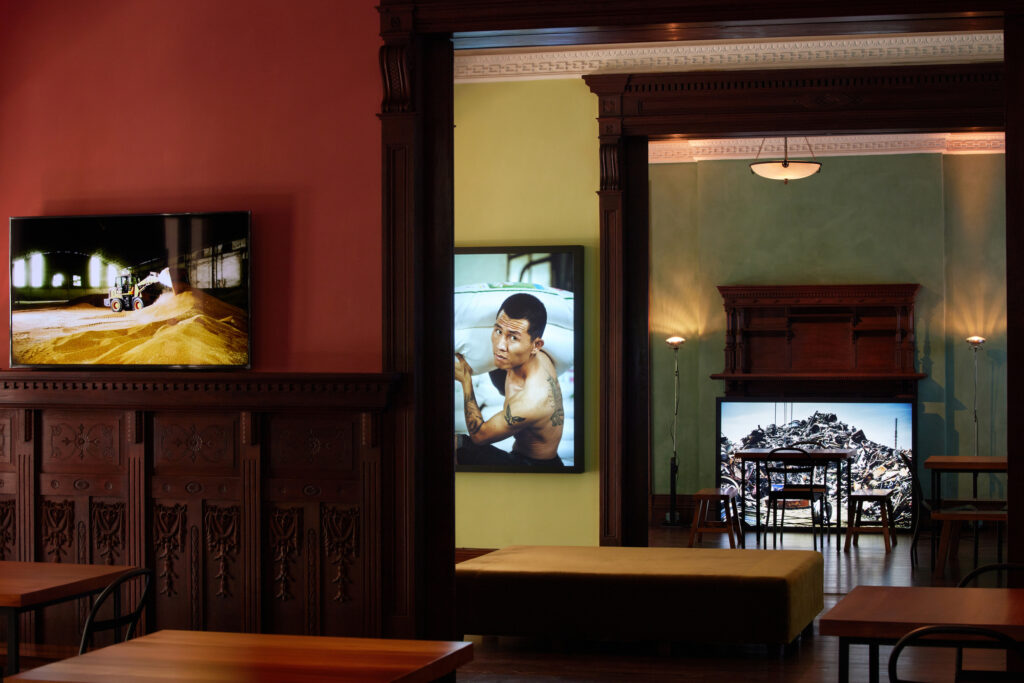
Built in 1918, Rong Zhai is a historic residence located in the heart of Shanghai. Image: Prada Mode Shanghai
There is, of course, a paradox at work. For two decades, Jia has risen to global prominence by crafting narratives ruthlessly exposing the inequities of Chinese society. In Mian, he staged an installation alongside a luxury fashion house for an event predominantly attended by Shanghai’s best-heeled celebrities and social media influencers. Yet despite its refined surroundings and glizzy trappings, Mian remained a work focused on the lives of ordinary people.
For “noodle”, there were flour making demonstrations — an ode both to the most famous export of Jia’s native Shanxi province and the industry through which the Rong family acquired its wealth. For “surface”, panel discussions into the impact of urbanization on rural culture. For “meeting”, eight video interviews that presented contemporary city residents with the reflections of Shanghainese stretching back to the 1930s.
Those not fortunate enough to receive a golden ticket could tune into a live stream of the event through Prada’s WeChat Mini Program — 200,000 thousand people did so according to Prada — further proof of international luxury houses embracing a medium whose primacy for engaging Chinese audiences has grown exponentially in 2020.
Prada Mode Shanghai represents a broader push by luxury brands into China’s experience economy by way of staging art exhibitions. In 2018, Louis Vuitton held the selfie-centric “Volez, Voguez, Voyage,” exhibition in Shanghai. Gucci followed with “The Artist is Present” at the city’s Yuz Museum and Chanel’s Mademoiselle Privé landed at West Bund Art Centre in 2019.
The aim is to deepen connections with China’s digitally native Millennials and Gen Zers by holding events that help brands distinguish themselves in a fiercely competitive marketplace. “Art exhibitions and events have become a type of social currency,” says Chris Yeung, a Senior Planning Manager at Hudson Rouge Shanghai, “[young consumers] see luxury brands as more than just products and services, they are a means of curating a better self and offering a more positive and meaningful lifestyle.”
The risk for fashion houses is that ill-conceived crossover exhibitions appear to the world’s most powerful group of luxury consumers as marketing gimmicks. To succeed, brands must blend art and culture into a commercial context with the appropriate cultural sensitivity and deference, says Katana Beijing, a digital consultancy with expertise in luxury.
“Prada connects with their Chinese audience through a clever and considered cultural dialogue and Rong Zhai is the perfect platform combining the brand’s own cultural heritage with the right Chinese touch, an understanding and respect for Chinese cultural heritage.”
Prada Mode Shanghai may have been more exclusive than most crossover art exhibitions hosted by fashion houses in China, but the social buzz it generated by gathering some of the city’s most influential young personalities means it’s a model likely to endure.
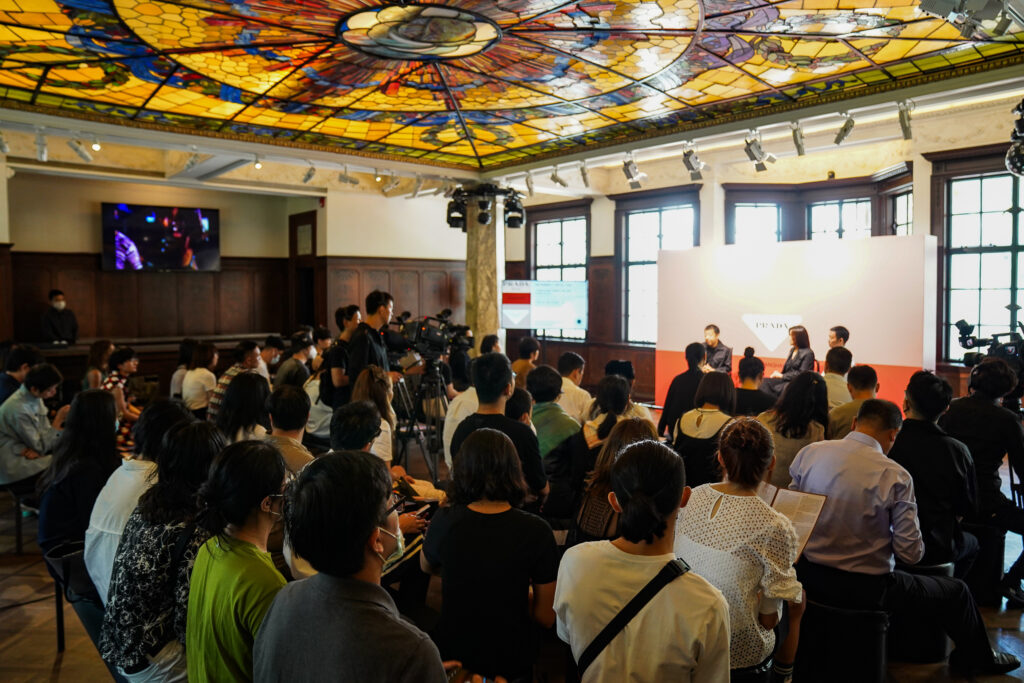
Prada Mode Shanghai’s daily program will feature both morning and afternoon conversations with leading cultural figures for guests to attend. Image: Prada Mode Shanghai
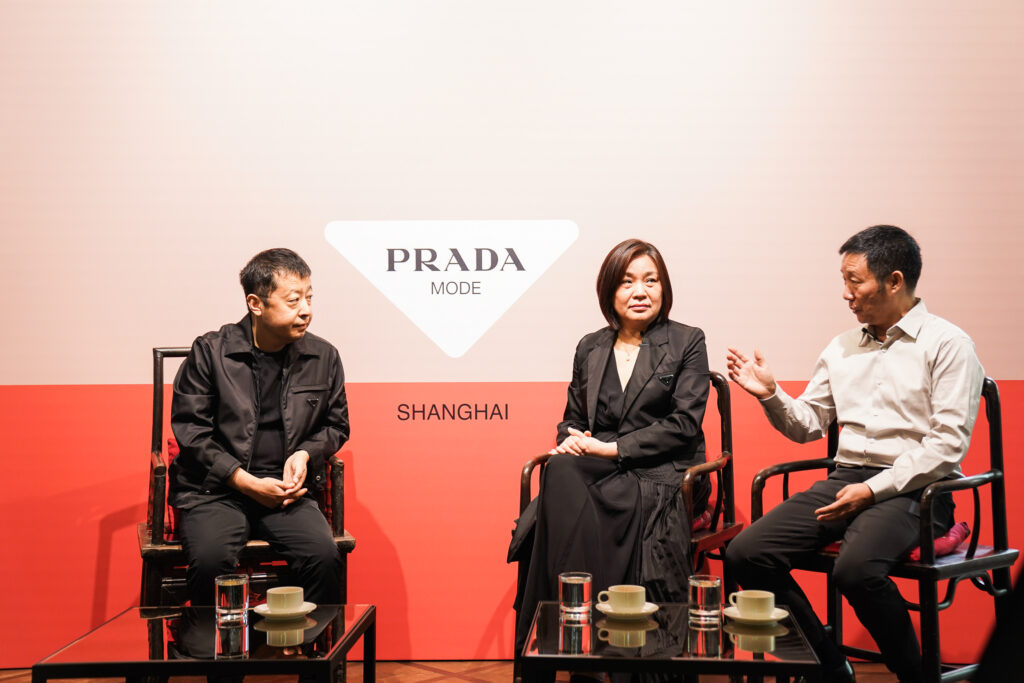
Film Director Jia Zhangke with Writer Liang Hong and Poet Ouyang Jianghe. Image: Prada Mode Shanghai.
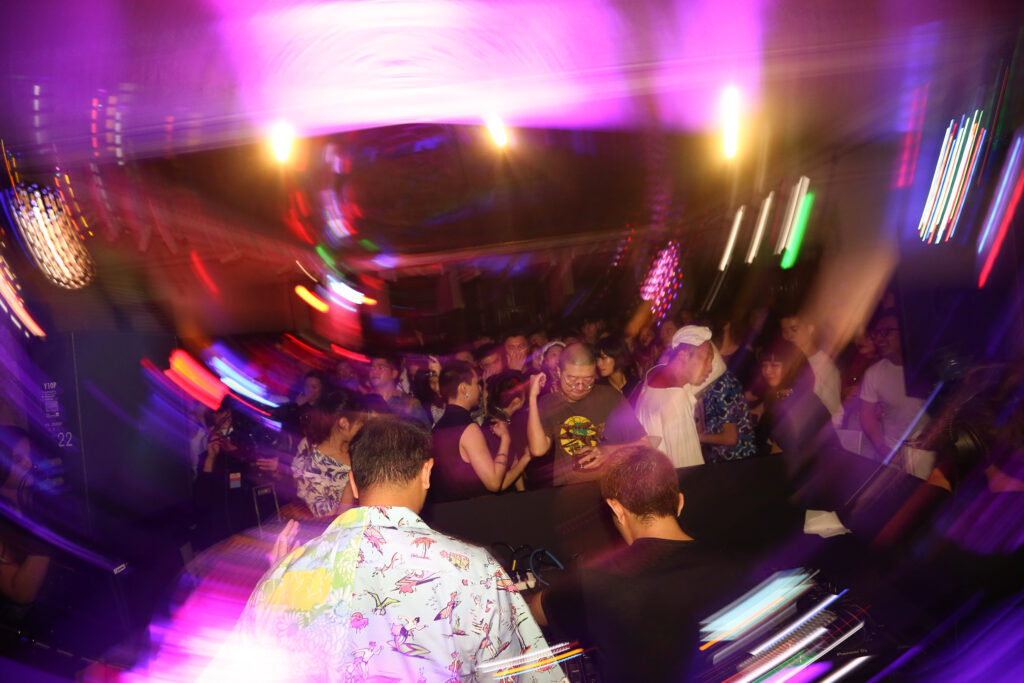
Prada aims to deepen connections with China’s digitally native Millennials and Gen Zers. Image: Prada Mode Shanghai
Additional reporting by Yaling Jiang and Wenzhuo Wu

